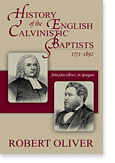Note: This is a little long, but I felt it was necessary . . .
“I hear the ‘moo’ of a Sacred Cow,” said Ted Traylor speaking of the suggestion that the church of a nominated candidate for SBC president must meet the 10% threshold of Cooperative Program (CP) giving. Since the news of First Baptist Church, Springdale, AR Cooperative Program giving was released, the SBC elites have been on a media blitz to defend Dr. Ronnie Floyd and his church’s giving to missions.
Earlier this year, an Ad Hoc Cooperative Program Committee was formed which made the recommendation that elected state and national officers be a part of churches that give at least 10% to the CP. This suggestion was an encouragement, not an obligation, which gained the approval of the SBC Executive Committee. Traylor recognizes that his suggestion is “non binding” but warns that enacting this could surrender the principle of individual churches defining their sphere of involvement in missions. This principle of conserving self-determination concerns me for several reasons.
First, there is a historical precedent in the SBC where churches were known to faithfully give to the CP. Anthony Jordan of the Baptist Messenger of Oklahoma writes, “For nearly 75 years, our churches averaged giving more than 10 percent of undesignated receipts to mission through CP. Today, the average has slipped to under 7 percent.” Throughout the past 75 years, there have been many reasons why giving could have gone down, including depression, wars, and other economic crises. Secondly, lest we all forget, the majority of this time was before the conservative resurgence. So what has happened that in the most prosperous days of the SBC and our country giving to the CP has decreased? This leads to my second point.
Second, there is a present crisis of cooperation in the SBC. As Dr. Floyd has stated, many churches are now seeking for the “personalization of missions.” What this means is churches are doing missions more independently than ever before. With the recent boom of short-term mission trips and unprecedented opportunities to plant churches worldwide, churches are seeking to do the Great Commission on their own. Predominantly, only megachurches are able to pull this off due to the necessary resources required to accomplish such a task.
This is where the “self-determining” of an autonomous church comes in. Churches today are building their Great Commission emphasis around themselves. I have heard the mantra over and over again, such as “We go on x number of mission trips each year and have planted x number of churches on every continent in the world.” Some will say, “There is not a place where the sun sets where we are not doing missions.” Notice the reference point is that particular local church. If this self-congratulatory rationalization for the lack of cooperation is not enough, we cannot forget that all this must be financed in some form or fashion. Thus, the money which would normally go to the CP goes to the efforts of the local church. Implicit in this strategy is that the individual church can do it better and more efficiently than the IMB. This is what I call being missionally myopic.
The whole purpose of the CP was to pool resources together to do what one could not do on its own. Through giving to the CP and the agency of the IMB, Southern Baptists have the largest missionary force in the world. Yet the supply line to these missionaries is being undermined by the reallocation of resources to accomplish short-term missions to the neglect of long-term missionaries. We have mission conferences, mission trips, mission training, etc., but are often forgetting about our missionaries! We cooperate not out of obligation, but as a privilege and an overwhelming desire to serve one another in love. Hear what the Baptist Faith and Message has to say about this:
Christ's people should, as occasion requires, organize such associations and conventions as may best secure cooperation for the great objects of the Kingdom of God. Such organizations have no authority over one another or over the churches. . . Members of New Testament churches should cooperate with one another in carrying forward the missionary, educational, and benevolent ministries for the extension of Christ's Kingdom.
Cooperation is voluntary true, but it is also expected, especially from our leaders. Inevitably, the nominations for the SBC presidency usually come from pastors of megachurches, and it is interesting to see how committed they are to the CP and whether they believe that it is that big of a deal. Hear again some thoughts by Jordan:
Our greatest challenge is electing a man who has demonstrated a proven commitment to the Southern Baptist way of supporting missions. Many of the megachurch pastors have turned aside from cooperative missions in favor of direct or societal missions. They do missions, but they choose to do what their church can accomplish, rather than realizing the power of what we can achieve together. They have abandoned a tried and true axiom among us. We can do more together than we can do alone.
Because of the relevancy of this year’s nomination, let’s take FBC Springdale for example. According to Ben Mayes, the church’s chief administration officer, for 2004-2005 fiscal year the church’s undesignated gifts totaled $11,952,137. The amount given to the CP was $32,000 which comes out to 0.27%. However, Mayes is quick to add that the church spent $2,648,000 in total support of missions and evangelism during that same time period. Now, you tell me, where is the emphasis being placed? On cooperation or conserving the “self-determination” of the local church?
In a recent interview with Baptist Press, Floyd said, “churches can and should do better” but “there was never mandated cooperation” or “scriptural basis for tithing to a denomination.” This is true, and the current recommendation is not a mandate nor an attempt to scripturally prove tithing to a denomination. Why does cooperation have to be shaded as an obligation, mandate, or requirement? I thought we cooperated and supported one another because we wanted to and because we believed in working together. Is this not the spirit and example we should hope to have in the leader of the SBC?
Floyd said, “I want to do more, I’ve done more. We’ve been doing more and we will continue to do more.” What he said it true—they have done more, and looking at the previous years of giving, one can see where the CP was more of a priority than it is today. Floyd also said that CP is a “tool” and “vehicle” which “can be relevant only to the point of the convention re-imaging and reinventing itself to meet the needs of SBC churches and help them propagate the Gospel around the world.” I mean no disrespect, but what about the needs of the missionaries around the world (through IMB) and stateside (through NAMB)? Don’t their needs count too?
What I have heard in recent days is warnings against making some arbitrary rule about giving 10 percent to the CP and how it should not be the “sacred cow” of the SBC. What I am not hearing is a passion for cooperation and a desire to show exemplary giving and commitment to missions as structured through the Southern Baptist Convention. I hear what some seminary presidents and megachurch pastors are saying in defense of Dr. Floyd, but I am concerned about what I am not hearing. Now to the third point.
The future direction of missions in the SBC needs the leadership to chart the course and handle the storms which come our way. Just in the last year, both the IMB and NAMB have had their share of controversies, and the SBC needs a leader who is committed to missions within the SBC, not just their local churches. We need a leader who has vision enough to see the big picture but principle enough to handle the transitional nuances or controversies which may arise. The SBC president, and the church which he pastors, should be a model of cooperation while unifying churches around the work of missions, not encouraging them to do it on their own (which most simply cannot because of logistical and financial inadequacies). This example should also be seen in their giving. No, this is not an obligation or mandate but an expectation which assumes that a person’s commitment to something will be evidenced where it lines up in their priorities and their pocketbooks.
Fundamentally, the Southern Baptist Convention exists for cooperation with one another for the purpose of the propagation of the gospel of Jesus Christ to the ends of the world. For 81 years, Southern Baptists have done this together as each church member has valued the importance of giving to the Cooperative Program. So in what sense does giving to the CP matter? It is not about a “golden number” or a church’s statistics on giving or their missional resume; it is about people and having a passion to reach them. We have over 6,000 of our own out there who have left their houses, brothers, sisters, mothers, fathers, and lands for the sake of Jesus and the gospel. Let’s not become spiritual cow-tippers. Though the CP made not be SBC's Sacred Cow, there is no reason to make it the Sacrificial Lamb. Let’s remember that it is not about us—it’s about them.











